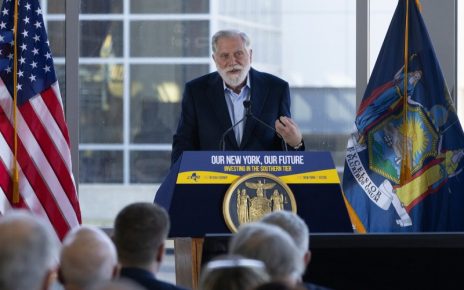Columbia University announced that Nemat “Minouche” Shafik, a leading economist and President of the London School of Economics, will become the 20the President of Columbia University on July 1, 2023. Her election concludes a wide-ranging and intensive search launched after Lee C. Bollinger announced that he would step down as Columbia’s president at the end of the 2022-2023 academic year.
[Photo above: Nemat Shafik, photo by Mark Bader]
Jonathan Lavine, chair of the Columbia Board of Trustees, called Shafik “the perfect candidate: a brilliant and able global leader, a community builder, and a preeminent economist who understands the academy and the world beyond it.”
“What set Minouche apart as a candidate,” Lavine said, “is her unshakable confidence in the vital role institutions of higher education can and must play in solving the world’s most complex problems. Like all of us in the Columbia community, she believes that in order to bring about meaningful change, we have a collective obligation to combine our distinctive intellectual capacities with groups and organizations beyond the academy.”
Lisa Carnoy, who led the Presidential Search Committee and whose term as co-chair of the Board of Trustees ended in the fall, described an extensive process for the 15 members of the Presidential Search Committee. The group spent hundreds of hours consulting with “advisory committees and academic leaders inside and outside of Columbia, talking with potential candidates, hearing from friends of the University and in many days of formal interviews and deliberations,” Carnoy wrote in a thank-you letter to search participants.
“By working together across the University and with our many stakeholders, we conducted a search not on behalf of any single group, but one that was in the overall interests of Columbia and with the very best result,” said Carnoy. “Minouche Shafik is the right leader for Columbia’s next chapter.”
Shafik has led the London School of Economics and Political Science (LSE) since 2017. There, she has overseen vast improvements to the student experience, recruited talented academic leaders, and managed significant expansion and infrastructure projects. She is a tireless proponent of diversity and inclusion and a creative and thoughtful leader committed to cultivating and promoting service to the public good. Shafik has edited, co-authored, or authored numerous articles and books, including, most recently, What We Owe Each Other: A New Social Contract (2021, Princeton University Press), in which she calls for a better social contract to underpin our economic system and challenges institutions and individuals to rethink how we can better support each other to thrive.
The selection of Shafik marks the first time since Columbia’s founding that the University will be led by a woman. Shafik also served as the first female leader of LSE and previously was the first female permanent secretary of the U.K. Department for International Development.
Nobel laureate and Columbia economics professor Joseph Stiglitz has known Shafik since the 1990s, when they were colleagues at the World Bank. He described her as a great economist, a great researcher, and a great listener. In each job she’s held, “she has combined enormous intellect with interpersonal skills that were very impressive, navigating complex bureaucracies.” These bureaucracies, Stiglitz said, consist of very intelligent people and require “dealing with them with respect, listening to them, and crafting solutions to the problems that they confront in a creative way.”



